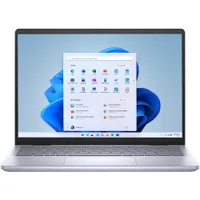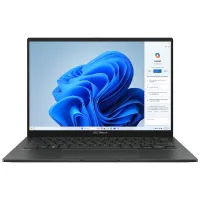Dell Inspiron 14 Plus vs. Asus Zenbook 14: Long battery life, low price, but which wins?
If you're looking for amazing battery life, these two should be at the top of your list. But should you get the Inspiron 14 Plus or Zenbook 14?
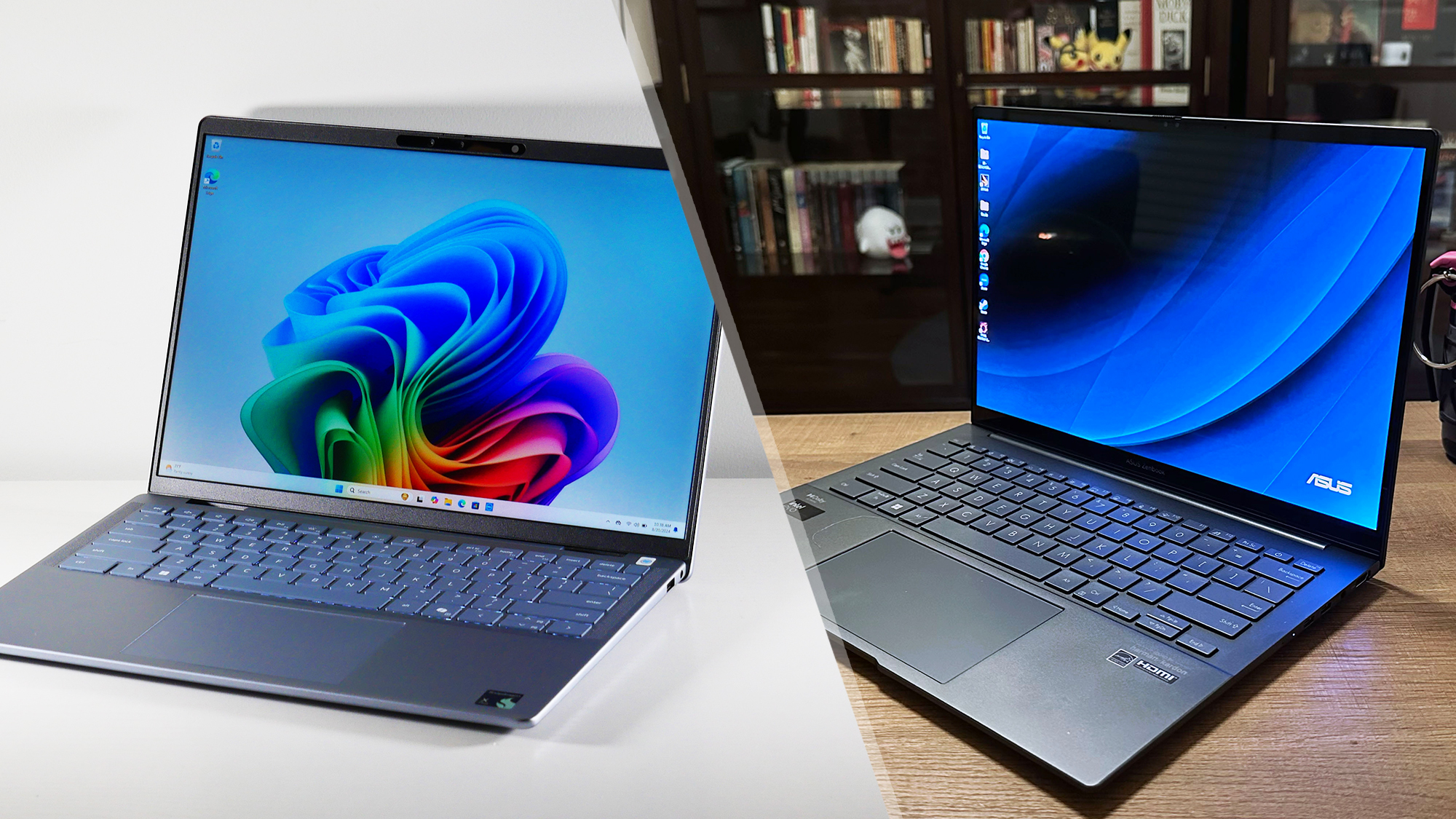
Battery life is an essential feature of a good laptop, and few do it better than the Dell Inspiron 14 Plus and Asus Zenbook 14. But what else do these beasts have to make you finalize your choice?
Dell and Asus are both reliable brands. We've been fans of the Zenbook 14 laptops that have come out in recent years, and the Inspiron line has been booming with battery life lately, so it's no surprise it did as well.
However, only one laptop belongs in your shopping cart. Let's see if it's the Dell Inspiron 14 Plus or the Asus Zenbook 14.
Dell Inspiron 14 Plus| ★★★★ Editor's Choice
Pros: Sharp, bright display; Strong performance; Incredible battery life; Decent webcam; Cool thermals
Cons: Poor gamut coverage; Middling graphics
See our full Dell Inspiron 14 Plus review.
Asus Zenbook 14 | ★★★★½ Editor's Choice
Pros: Almost 16 hours of battery life!; Snappy performance; Quality audio; Smooth, comfortable keyboard; Secure webcam privacy shutter
Cons: Display could be brighter
See our full Asus Zenbook 14 OLED (Q425M) review.
Dell Inspiron 14 Plus vs. Asus Zenbook 14: Specs compared
| Model | Dell Inspiron 14 Plus | Asus Zenbook 14 |
|---|---|---|
| Price | $899 | $749 |
| CPU | Snapdragon X Plus X1P-64-100 | Intel Core Ultra 7 155H |
| RAM | 16GB | 16GB |
| Graphics | Qualcomm Adreno | Intel Arc Graphics |
| Display | 14-inch, 2560 x 1600, 60Hz, touch | 14-inch, 1920 x 1200, 60Hz, OLED |
| Weight | 3.17 pounds | 3 pounds |
| Dimensions | 12.36 x 8.81 x 0.58~0.67 inches | 12.3 x 8.67 x 0.59 inches |
Dell Inspiron 14 Plus vs. Asus Zenbook 14: Price
Despite having relatively low price points, the Dell Inspiron 14 Plus and Asus Zenbook 14 have a wide price gap. Let's break down what you get and how much it costs.
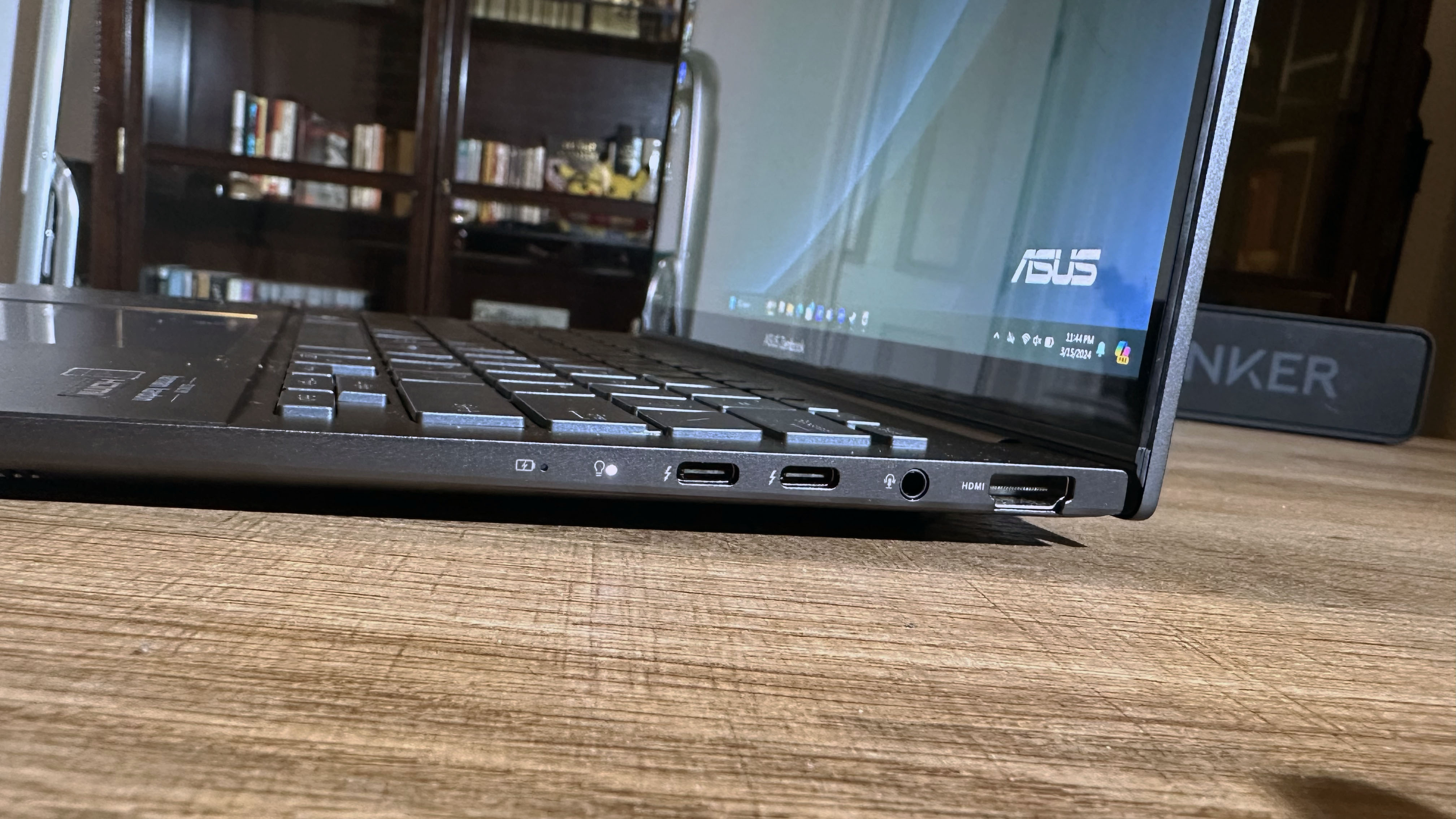
For $899, the Dell Inspiron 14 Plus features a Snapdragon X Plus X1P-64-100 processor, 16GB of RAM, a 512GB SSD, and a 14-inch, 2560 x 1600, 60Hz touch display.
For $749 (original price: $1,049), the Asus Zenbook 14 offers an Intel Core Ultra 7 155H processor, 16GB of RAM, a 1TB SSD, and a 14-inch, 1920 x 1200, 60Hz, OLED display.
The Zenbook 14 is cheaper and even doubles the storage that the Inspiron 14 Plus can offer. On the other hand, the Inspiron 14 Plus does offer a sharper display. But is that really worth the current $150 difference? After all, the Inspiron's display is IPS, whereas the Zenbook 14's is OLED, which means it'll offer bolder colors and deeper blacks.
Sign up to receive The Snapshot, a free special dispatch from Laptop Mag, in your inbox.
You can drop the Inspiron 14 Plus to a 256GB SSD, which costs $999 (yes, really), while maxing it out with a 1TB SSD, and the Snapdragon X Elite X1E-80-100 CPU pushes it to $999. The Zenbook 14 did have a low-end configuration with an Intel Core Ultra 5 135H processor, 8GB of DDR5 memory, and 512GB of SSD storage, but that comes in at $799, so it means nothing right now.
With the high-end Zenbook 14 on sale, it crushes the Inspiron 14 Plus. Arguably at full price, too. Even if it's not by the time you read this, wait for the sale to come again.
Winner: Asus Zenbook 14
Dell Inspiron 14 Plus vs. Asus Zenbook 14: Design
Traditional, boring laptop designs plague the Dell Inspiron 14 Plus and Asus Zenbook 14, but I like one more than the other.
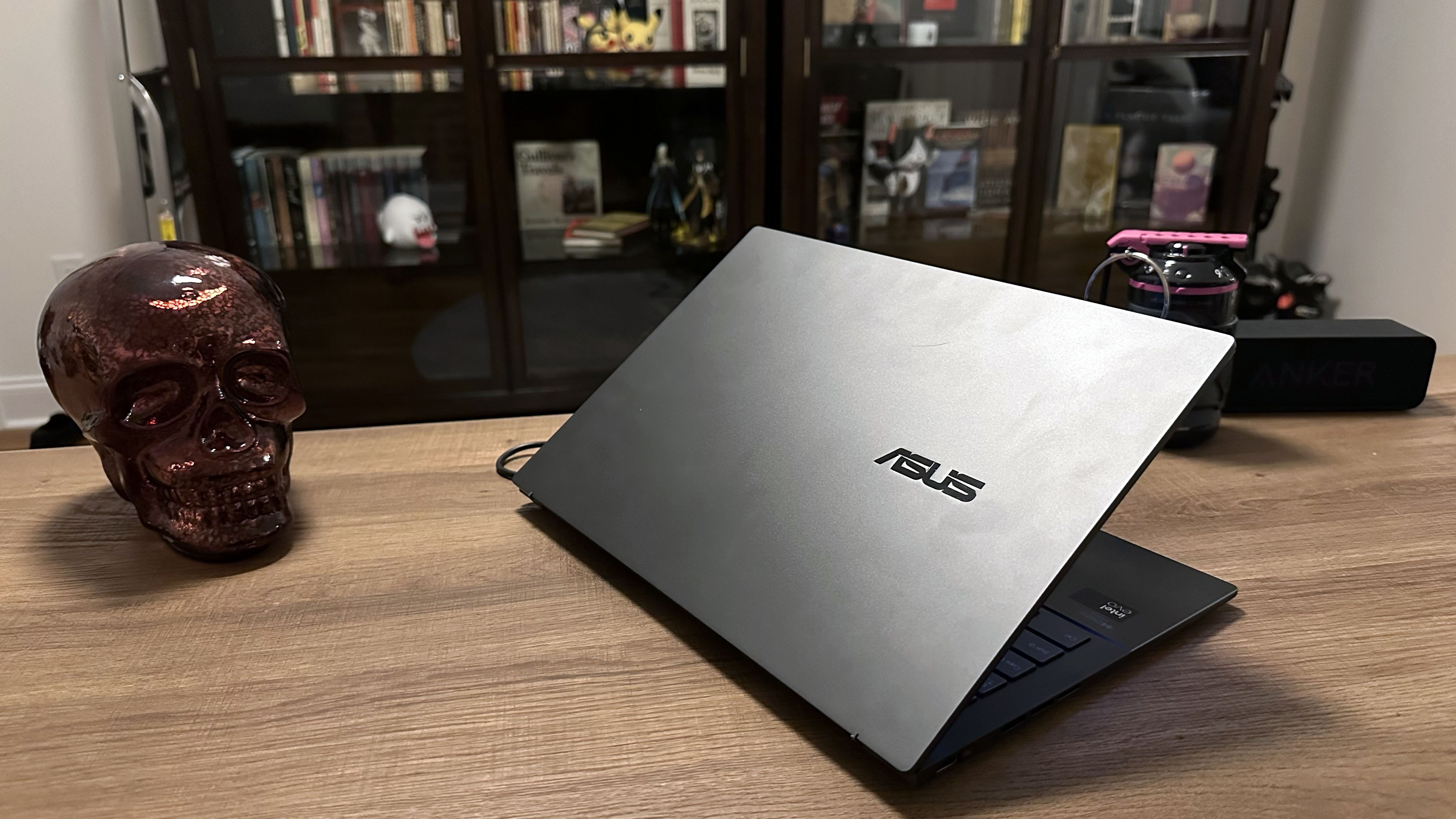
The Dell Inspiron 14 Plus rocks a sleek silver chassis, while the Zenbook 14 goes a few shades darker for a mysterious gray body you could get lost in. While the Inspiron looks like any old laptop, the Zenbook 14 offers a more alluring look due to how the light catches on its dark chassis.
Meanwhile, the Inspiron 14 Plus comes in at 3.17 pounds and 12.36 x 8.81 x 0.58~0.67 inches, and the Zenbook 14 stacks up to 3 pounds and 12.3 x 8.67 x 0.59 inches.
The Zenbook 14 is an easy choice, from its luxurious-looking color to its slimmer chassis.
Winner: Asus Zenbook 14
Dell Inspiron 14 Plus vs. Asus Zenbook 14: Display
OK, this section is a little more complicated because you might think one of them is the winner, but it's actually the other one. The Dell Inspiron 14 Plus has a 14-inch, 2560 x 1600, 60Hz touch display, and the Asus Zenbook 14 offers a 14-inch, 1920 x 1200, 60Hz OLED display.

The Inspiron 14 Plus offers a sharper display right out of the factory, while the Zenbook 14 features quality display technology. So, how do they stack up in benchmarks?
The Dell Inspiron 14 Plus covers 69.1% of the DCI-P3 color gamut and emits 470 nits of brightness. The Asus Zenbook 14 outputs 79.8% of the DCI-P3 color gamut and supports 339 nits of brightness.
The Inspiron 14 Plus is hella bright and offers a crispier display, so what's just 10% of color coverage? Let me tell you, it's a lot. Between its higher color coverage and its OLED panel, the Zenbook 14 offers a more pleasing viewing experience. Unfortunately, the Inspiron 14 Plus looks too washed out to really enjoy your favorite content.
Winner: Asus Zenbook 14
Dell Inspiron 14 Plus vs. Asus Zenbook 14: Performance
The Dell Inspiron 14 Plus and Asus Zenbook 14 feature wildly different processors, but their performance race is tighter than expected. The former features the new Snapdragon X Plus X1P-64-100 chipset, while the latter comes with the Intel Core Ultra 7 155H CPU. So how do they fare?
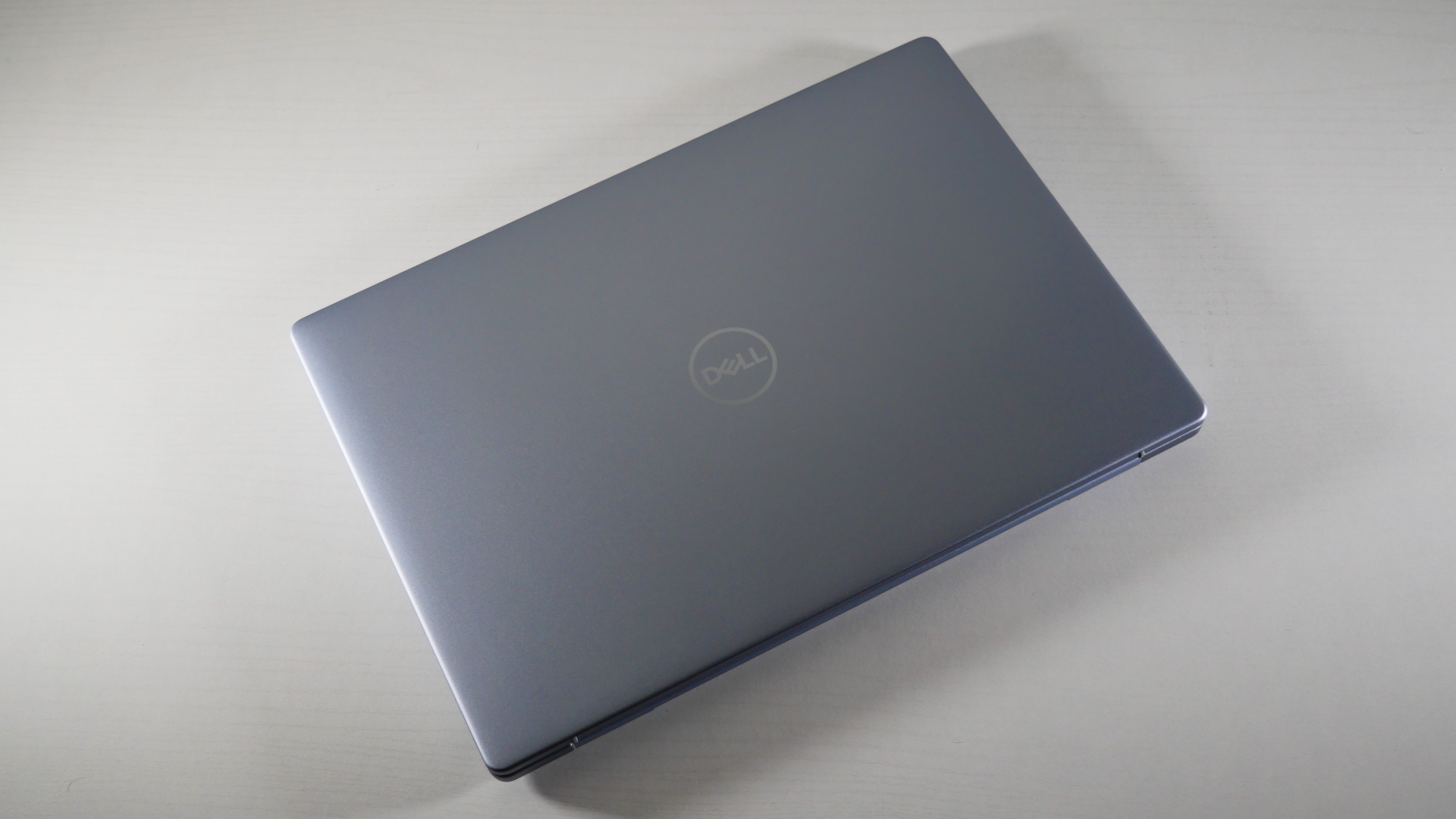
On the Geekbench 6.3 overall performance test, the Dell Inspiron 14 Plus scored 13,281, sliding past the Asus Zenbook 14, which scored 12,707.
In a more real-world test, the Inspiron 14 Plus transcoded a 4K video to 1080p in 6 minutes and 23 seconds, just slipping past the Zenbook 14's 6:36 time.
Our storage test proved to offer a wider gap. We measured the transfer rate of 25GB of multimedia files, and the Inspiron 14 Plus’s 512GB SSD scored 1,510 megabytes per second, while the Zenbook 14’s 1TB SSD managed 1,236 megabytes per second.
The gap in performance isn't groundbreaking, but the Dell Inspiron 14 Plus remains stronger overall
Winner: Dell Inspiron 14 Plus
Dell Inspiron 14 Plus vs. Asus Zenbook 14: Battery life
Both the Dell Inspiron 14 Plus and Asus Zenbook 14 scored as high as they did in our reviews because of their excellent battery life. And while you'll get more than a workday out of both, which lasts longer?
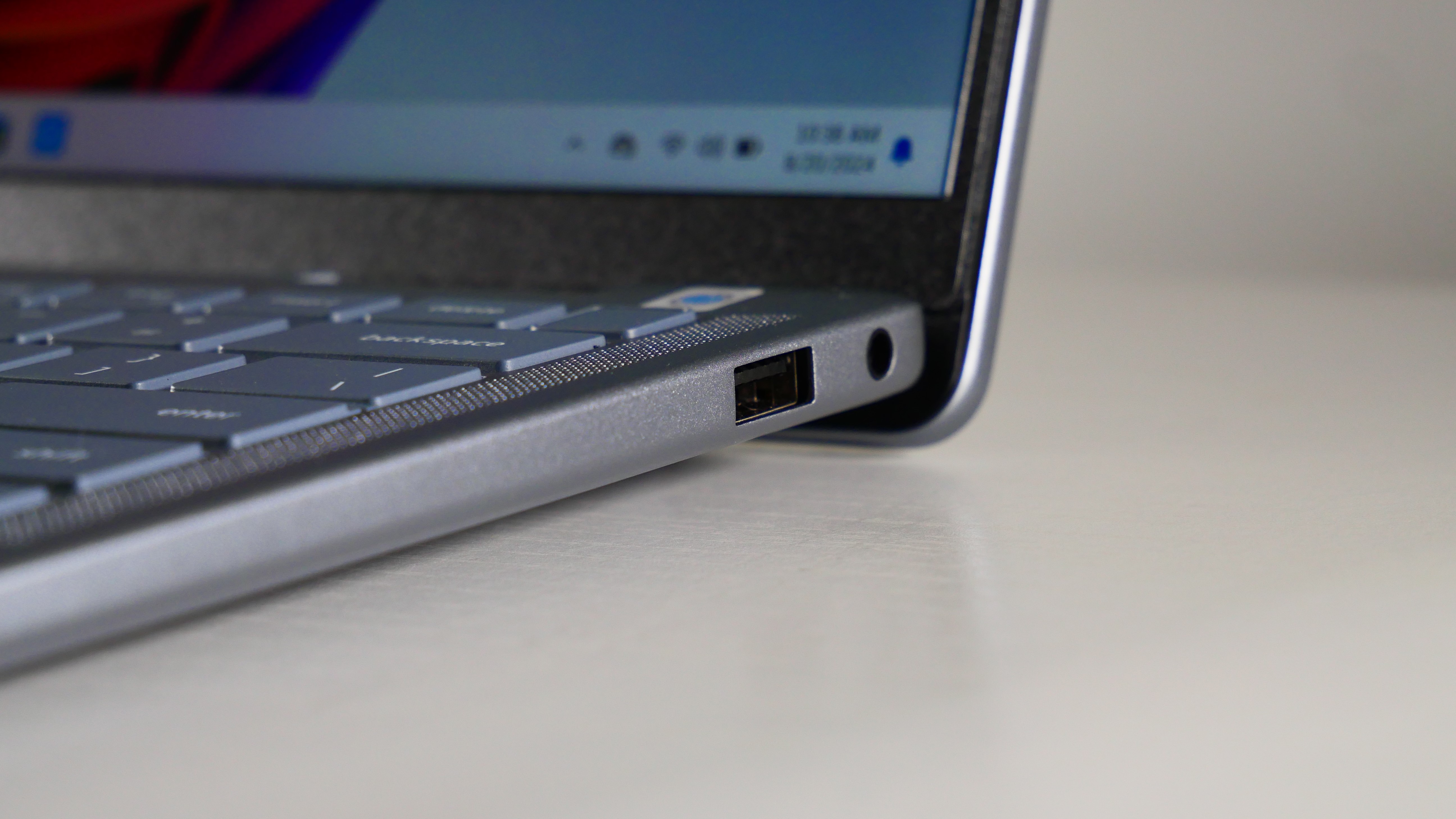
On the Laptop Mag battery test — which continuously surfs through webpages over Wi-Fi at 150 nits of brightness — the Dell Inspiron 14 Plus lasted a whopping 18 hours and 20 minutes.
The Zenbook 14 died a bit further back, at 15 hours and 52 minutes. That's a huge gap, but that doesn't mean the Zenbook 14 has poor battery life. In fact, it's one of the laptops with the best battery life.
Winner: Dell Inspiron 14 Plus
Overall winner: Asus Zenbook 14
Even with their slightly different ratings, the race between the Dell Inspiron 14 Plus and the Asus Zenbook 14 was tighter than that Predator handshake. But like The Predator, only one character lives, and that's the Zenbook 14.
Yes, the Inspiron 14 beat it in battery life and performance, but the Zenbook 14 is rather competitive in both departments. Not to mention, it's much cheaper, its display is more vivid, and it's more portable overall.
However, the Dell Inspiron 14 Plus is still a great choice. If you want the most out of your battery life, then it's the best of the two. I wouldn't make the choice based on performance alone unless you will be using that NPU in the Inspiron 14 Plus to work with AI.
Overall, the Asus Zenbook 14 is the champ and would find itself in my shopping cart before the Inspiron 14 Plus.
Winner: Asus Zenbook 14

Rami Tabari is the Reviews Editor for Laptop Mag. He reviews every shape and form of a laptop as well as all sorts of cool tech. You can find him sitting at his desk surrounded by a hoarder's dream of laptops, and when he navigates his way out to civilization, you can catch him watching really bad anime or playing some kind of painfully difficult game. He’s the best at every game and he just doesn’t lose. That’s why you’ll occasionally catch his byline attached to the latest Souls-like challenge.
